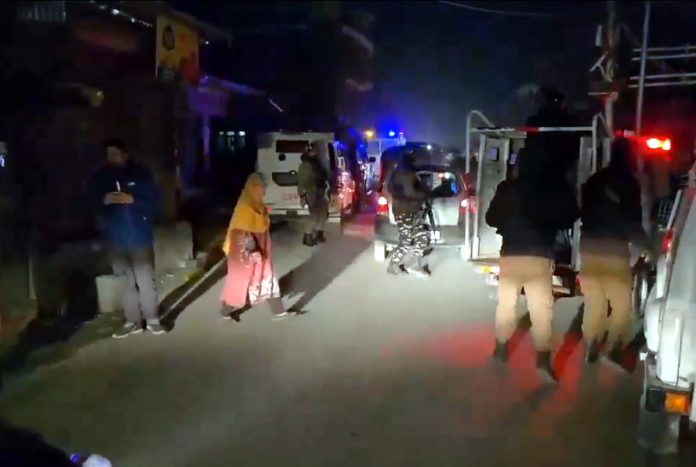The recent targeted killing of two workers from Punjab in the Habba Kadal area of Srinagar marks a grim beginning to the year, shedding light once again on the persistent threat of terrorism in the region. Amritpal Singh, a resident of Amritsar, fell victim to terrorists who callously fired upon him, leaving him dead on the spot. Another individual, Rohit, also from Amritsar, sustained grave injuries in the same incident and later succumbed to terrorist bullets in the hospital, highlighting the indiscriminate nature of such attacks. This tragic event underscores a troubling reality: the vulnerability of non-local workers in Kashmir to terrorist violence. Despite the efforts to maintain peace and stability in the region, innocent lives continue to be targeted, causing anguish and despair among communities. Amritpal and Rohit, like countless others who seek opportunity in Kashmir, were simply trying to earn a living and build a better life. Their brutal killing exposes the depravity of those who resort to violence to further their agenda, leaving behind a trail of shattered families and deepening communal divides. Such targeted attacks not only instil fear and insecurity but also threaten the very fabric of Kashmiri society, where diverse communities have co-existed for centuries.
The targeted killings of two innocent people are not an isolated incident but rather a continuation of a series of attacks on non-local workers in the valley over the past year. In 2023, terrorists carried out several assaults on non-local individuals, demonstrating a callous disregard for human life.
The repeated instances of targeted violence are deeply concerning and have inflicted immense pain and suffering for far too long. These incidents not only result in loss of life but also disrupt the socio-economic fabric of the region, as non-local workers play a crucial role in various sectors, including agriculture, construction, and tourism.
Each life lost is a tragedy, and the cumulative impact of these attacks erodes the progress made towards peace and stability. The onus lies with the security agencies. The recurring pattern of violence against non-local workers underscores the urgent need for enhanced security measures and proactive measures to safeguard vulnerable populations in Kashmir. The authorities must strengthen intelligence-gathering mechanisms, improve coordination among security forces, and intensify efforts to neutralise terrorist networks operating in the region. Additionally, there must be a focus on community engagement and outreach to build trust and cooperation, thereby isolating extremist elements and preventing radicalization.
The condemnation of such heinous acts by leaders and authorities is crucial in sending a strong message against terrorism and reaffirming the commitment to protect the lives and dignity of all individuals, irrespective of their background or place of residence. The onus also lies upon civil society to actively reject and condemn acts of violence and extremism. Building bridges of understanding and fostering inclusive dialogue is the only way to counter the forces that seek to divide and destroy. Moreover, the civil and police administrations must provide comprehensive support and assistance to the affected families, including financial assistance. The rehabilitation and compensation of victims of terrorism must be prioritised to ensure their well-being and resilience in the face of adversity.
The responsibility to break this cycle of violence lies with all stakeholders. The security forces must redouble their efforts to apprehend the perpetrators and dismantle terror networks. These two targeted killings are a stark reminder of the immense human cost of conflict. Remnants of terrorist groups and ideologies persist, posing a continuous threat. It is a call to action for all those who yearn for a peaceful and prosperous Kashmir.
Trending Now
E-Paper


